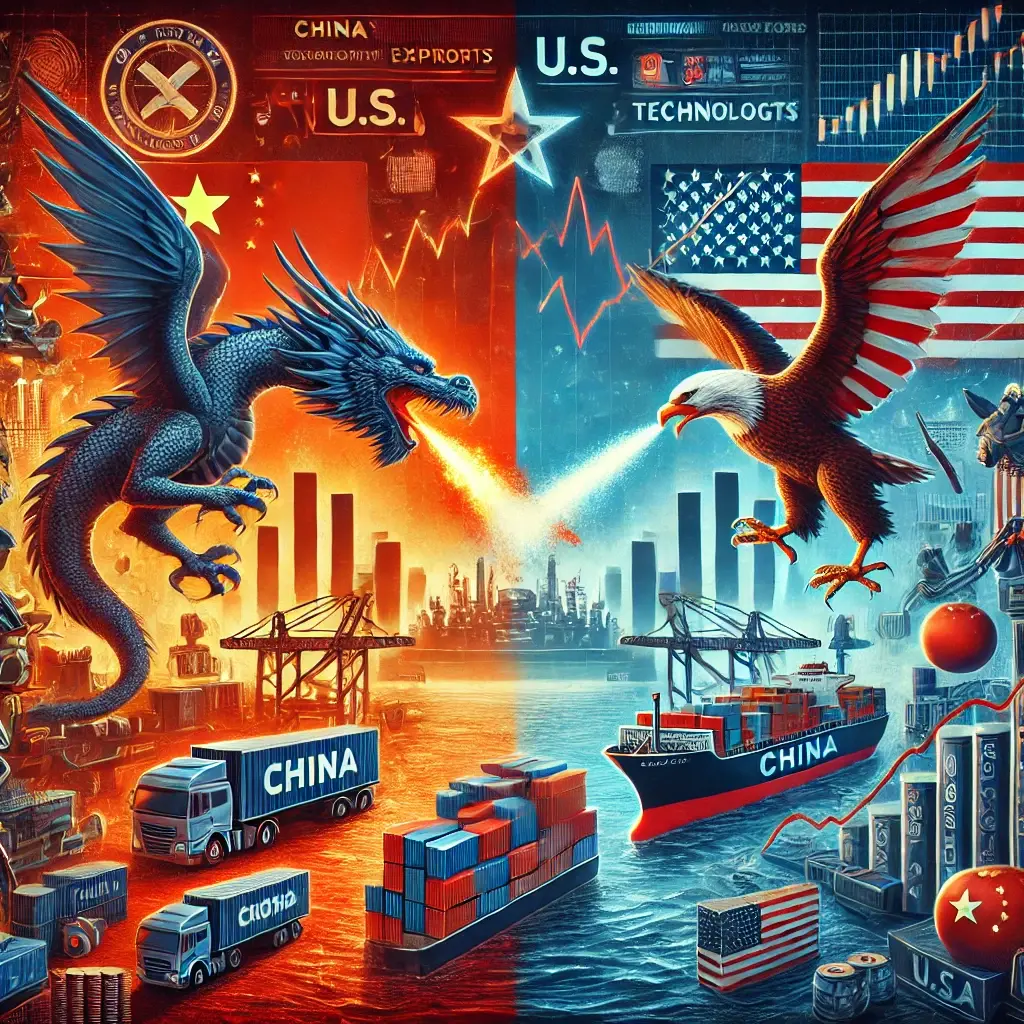
The ongoing trade tensions between China and the United States have taken a new turn, as Beijing has announced fresh tariff measures and sanctions against U.S. entities. These moves come in response to U.S. tariff hikes and export restrictions, intensifying the already strained relations between the two economic superpowers.
China's Finance Ministry Announces New Tariffs on U.S. Goods
China’s Finance Ministry has unveiled additional tariffs on various American products, a move seen as retaliation against recent U.S. trade policies. The key highlights of these new tariff measures include:
Additional tariffs of up to 15% on select U.S. goods.
The new tariffs will be enforced starting March 10, 2025.
A 10% tariff will be imposed on key U.S. exports, including soybeans, pork, beef, aquatic products, fruits, vegetables, and dairy products.
These new measures are expected to impact U.S. agricultural exports significantly, as China is one of the biggest markets for American farm products. This move will likely increase costs for U.S. farmers and exporters, who are already facing challenges due to previous trade disputes.
China’s Commerce Ministry Responds with Entity List Expansions
In a separate but related development, China’s Commerce Ministry has taken further steps to counter U.S. trade policies by expanding its control over American companies operating in China. The latest measures include:
Adding 15 U.S. entities to China’s export control list, restricting their ability to trade with Chinese firms.
Adding 10 U.S. firms to the unreliable entity list, limiting their business operations in China.
Banning Illumina Inc. from exporting gene sequencing machines to China starting March 4, 2025.
Strongly opposing U.S. unilateral tariff hikes and vowing to protect China's legitimate trade rights.
These restrictions could have a major impact on American technology and healthcare sectors, particularly those involved in biotechnology and genetic research.
Implications for Global Trade and Markets
This new wave of tariffs and sanctions signals an escalating trade war between the U.S. and China. Businesses on both sides are likely to face increased costs and trade barriers, which could disrupt global supply chains and impact economic growth.
For investors, this could lead to market volatility, particularly in sectors such as agriculture, technology, and healthcare. Companies that rely on Chinese imports or exports may experience financial strain, and consumers could see higher prices on affected goods.
The U.S.-China trade conflict continues to evolve, with both nations adopting aggressive measures to protect their interests. While negotiations may still be an option, these latest announcements indicate that tensions are far from over. As the global economy braces for potential disruptions, businesses and investors must stay informed and adapt to changing trade policies.
Disclaimer
This article is for informational purposes only and does not constitute financial, investment, or trade advice. Readers should conduct their own research or consult with professionals before making any business or investment decisions. SensexNifty.com is not responsible for any financial or trade-related losses resulting from actions taken based on this article.




